
Seamus Justin Heaney was an Irish poet, playwright and translator. He received the 1995 Nobel Prize in Literature. Among his best-known works is Death of a Naturalist (1966), his first major published volume. American poet Robert Lowell described him as "the most important Irish poet since Yeats", and many others, including the academic John Sutherland, have said that he was "the greatest poet of our age". Robert Pinsky has stated that "with his wonderful gift of eye and ear Heaney has the gift of the story-teller." Upon his death in 2013, The Independent described him as "probably the best-known poet in the world".

Brian Patrick Friel was an Irish dramatist, short story writer and founder of the Field Day Theatre Company. He had been considered one of the greatest living English-language dramatists. He has been likened to an "Irish Chekhov" and described as "the universally accented voice of Ireland". His plays have been compared favourably to those of contemporaries such as Samuel Beckett, Arthur Miller, Harold Pinter and Tennessee Williams.
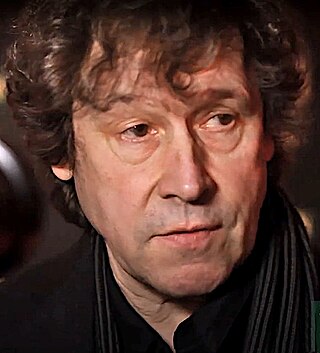
Stephen Rea is an Irish actor of stage and screen. Born in Belfast, Northern Ireland, he began his career as a member of Dublin's Focus Theatre, and played many roles on the stage and on Irish television. He came to the attention of international film audiences in Irish filmmaker Neil Jordan's 1992 film The Crying Game, and subsequently starred in many more of Jordan's films, including Interview with the Vampire (1994), Michael Collins (1996), Breakfast on Pluto (2005), and Greta (2018). He also played a starring role in the Hugo Blick 2011 TV series The Shadow Line.
Thomas Neilson Paulin is a Northern Irish poet and critic of film, music and literature. He lives in England, where he was the G. M. Young Lecturer in English Literature at Hertford College, Oxford.

Irish literature is literature written in the Irish, Latin, English and Scots languages on the island of Ireland. The earliest recorded Irish writing dates from back in the 7th century and was produced by monks writing in both Latin and Early Irish, including religious texts, poetry and mythological tales. There is a large surviving body of Irish mythological writing, including tales such as The Táin and Mad King Sweeny.
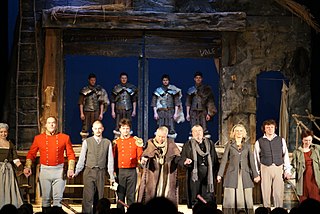
Translations is a three-act play by Irish playwright Brian Friel, written in 1980. It is set in Baile Beag (Ballybeg), a County Donegal village in 19th-century Ireland. Friel has said that Translations is "a play about language and only about language", but it deals with a wide range of issues, stretching from language and communication to Irish history and cultural imperialism. Friel said that his play "should have been written in Irish" but, despite this fact, he carefully crafted the verbal action in English, bringing the political questions of the play into focus. Baile Beag is a fictional village, created by Friel as a setting for several of his plays, although there are many real places called Ballybeg throughout Ireland.
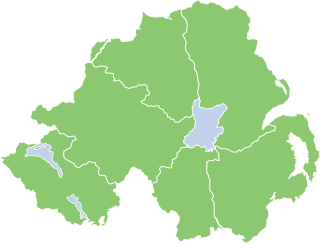
The culture of Northern Ireland relates to the traditions of Northern Ireland. Elements of the Culture of Ulster, the Culture of Ireland as a whole, the Culture of Scotland and the Culture of England are to be found.
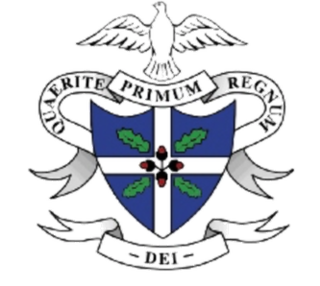
St Columb's College is a Roman Catholic boys' grammar school in Derry, Northern Ireland. Since 2008, it has been a specialist school in mathematics. It is named after Saint Columba, the missionary monk from County Donegal who founded a monastery in the area. The college was originally built to educate young men into the priesthood, but now educates boys in a variety of disciplines.
Seamus Francis Deane was an Irish poet, novelist, critic, and intellectual historian. He was noted for his debut novel, Reading in the Dark, which won several literary awards and was nominated for the Booker Prize in 1996.
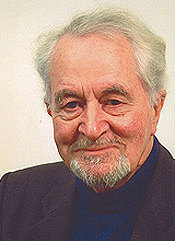
Desmond Carolan Fennell was an Irish writer, essayist, cultural philosopher, and linguist. Throughout his career, Fennell repeatedly departed from prevailing norms. In the 1950s and early 1960s, with his extensive foreign travel and reporting and his travel book, Mainly in Wonder, he departed from the norm of Irish Catholic writing at the time. From the late 1960s into the 1970s, in developing new approaches to the partition of Ireland and the Irish language revival, he deviated from political and linguistic Irish nationalism, and with the philosophical scope of his Beyond Nationalism: The Struggle against Provinciality in the Modern World, from contemporary Irish culture generally.

Wintering Out (1972) is a poetry collection by Seamus Heaney, who received the 1995 Nobel Prize in Literature.
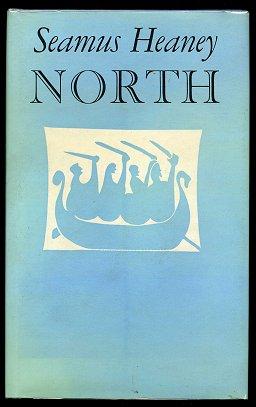
North (1975) is a collection of poems written by Seamus Heaney, who received the 1995 Nobel Prize in Literature. It was the first of his works that directly dealt with the Troubles in Northern Ireland, and it looks frequently to the past for images and symbols relevant to the violence and political unrest of that time. Heaney has been recorded reading this collection on the Seamus Heaney Collected Poems album.
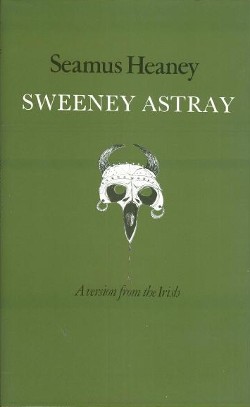
Sweeney Astray: A Version from the Irish is a version of the Irish poem Buile Shuibhne written by Seamus Heaney, based on an earlier edition and translation by J. G. O'Keeffe. The work was first published in 1983 and won the 1985 PEN Translation Prize for poetry.
Garbhan Downey is a novelist and editor from Derry, Northern Ireland. He is the former Director of Communications and Marketing for Culture Company 2013, which delivered Derry's City of Culture year.
Edna Longley, is an Irish literary critic and cultural commentator specialising in modern Irish and British poetry.

Literature of Northern Ireland includes literature written in Northern Ireland, and in that part of Ireland prior to 1922, as well as literature written by writers born in Northern Ireland who emigrated. It includes literature in English, Irish and Ulster Scots.

Margo Harkin is an Irish filmmaker. Best known for the drama Hush-a-Bye Baby and the documentary Bloody Sunday: A Derry Diary, Harkin produced the surfing documentary Waveriders in 2008.
Richard Leslie Beswetherick Pine is the author of critical works on the Irish playwright Brian Friel, the Anglo-Irish novelist Lawrence Durrell, and aspects of art music in Ireland. He worked for the Irish national broadcaster RTÉ Raidió Teilifís Éireann before moving to Greece in 2001 to found the Durrell School of Corfu, which he directed until 2010. Since 2009 he has written a regular column on Greek affairs in The Irish Times and is also an obituarist for The Guardian.
John Wilson Foster is an Irish literary critic and cultural historian.












